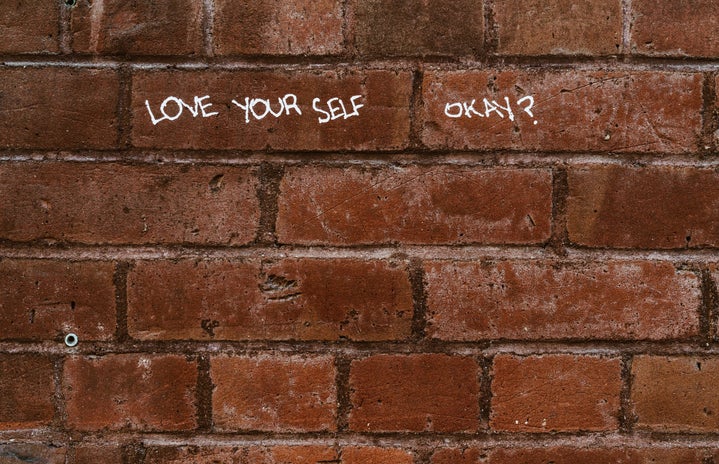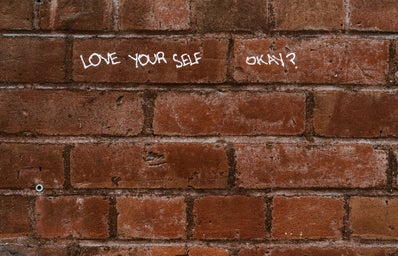In a world that often seems dominated by social impressions, reactions, and connections, my actions often feel more dire and major than they are. Most of the time, my awareness of how our actions affect others is a good thing; it allows me to understand others’ feelings and to change my behavior. I often think of myself as a highly self-aware person. However, sometimes, my tendency to value others’ opinions and reactions can lead to anxiety, stress, and hesitation, which has halted my plans and interfered with my life. While it’s good to be self-aware and empathetic, I’ve learned that it’s equally important to be my own advocate and to set boundaries on how I want to live my life.
As someone who has always been quiet, reserved, and sensitive, it’s hard for me to confront people. In fact, confronting people literally gives me nightmares. For a long time, I would ignore my gut feelings, often giving up my time, energy, and work so that other people wouldn’t be disappointed or angry with me. The idea of confronting someone who angered or hurt me was worse than continuing to suffer in silence – or so I thought. Over time, feelings of anxiety and stress built up; after all, 21 years of non-confrontation doesn’t really allow you that much space to think or feel.
Previously, I had often ignored or avoided confrontation in relationships – it was easier to break things off on ‘good terms’ than tell people how I truly felt. In several relationships in my early 20s, I knew something was off. In some cases, the chemistry wouldn’t work out with someone. In other cases, I knew that I deserved someone who made me feel better about myself. In both situations, I desperately wanted to brush the issue aside, but feelings aren’t receptive to being kept in a corner, unfortunately. Although it was tremendously difficult, I started telling my partners how I felt – whether during breakups or regular conversations – and it was like a giant weight had lifted off my shoulders. Most importantly, expressing my feelings, especially my anger, allowed me the self-confidence and integrity to tell people what I deserve should not be pushed aside. Regardless of how they felt or interpreted the situation, my feelings were equally valid and I was tired of erasing them to fit into someone else’s narrative.
After I began to respect my own voice in romantic relationships, I began to speak up more about my feelings in other atmospheres – in class, family conflicts, and friendships. To avoid feeling suppressed, I started to explicitly tell people how I felt. Sometimes, I would simply tell my boyfriend that I need a night alone or my brothers that I’m not doing their chores. Once I started to say ‘no’ in all of these small instances, I began to feel relieved and free from the worries that plagued me before. Although I am still receptive towards other people’s struggles and feelings, I no longer place theirs above mine; conversations are only equal if I allow them to be equal, and I was tired of ignoring my own validity.
As a woman, it is especially important to me that I learned to say ‘no’ because I began to discover and uncover that most of my childhood was built around socialized expectations that I would be ‘good’ and easy to deal with. I remember a particular instance from grade school that has irked me ever since I found my voice. When I was about 10, I was completing a craft and a boy in my class took the tape I was holding out of my hands. Naturally, I got angry. I don’t remember what I said, but I remember I said something – I confronted him. Because I raised my voice in an angry tone, my teacher yelled at me and I stayed in for detention. The one thing I remember most about that episode was that she said that it was so ‘unlike’ me to act like that. I remember thinking, “Act like what? Be angry?” I point to this moment not to suggest that it has shaped my life (after all, it was only a childhood incident) but to suggest that some of the messages and reactions I received from other people shaped my reluctance to say no and I feel that they were gendered around what ‘girls’ are allowed to angrily express. It’s easy to feel like being told to be ‘ladylike’ is a normal experience, but the underlying connotations, now that I look back on them, were to be quiet, submissive, and nice. When I think about these childhood experiences, I often wonder if my discomfort of confrontation originates from the idea that opposition or anger will ruin that image of myself. As a girl, I was supposed to be the well-behaved one; well-behaved girls don’t make people angry, or say things that might be true but upset someone, or raise an argument when they feel hurt. But, the truth is, being a well-behaved girl may have been a parent’s dream but, in my case, trapped feelings that never really left. I was always a ‘nice’ girl. When I look back at how boys, particularly my brothers, were allowed to scream, to yell, to break things, and to be angry, I feel that I grew up expecting myself to be the ‘nice’ girl.
Over time, the voices on the outside became the voices on the inside. Although it’s comforting and perhaps safe to conform to others’ expectations, I’m exhausted. When I started to say ‘no,’ I realized that I wasn’t just causing a fight or raising a fuss – I was upset about something. Rather than suppressing these feelings, I acknowledge my feelings, my pain, and most importantly, my value as a person. I might not be a ‘nice girl’ anymore, but I’m nice to the inner voice that has been telling me to speak up since childhood.


